Bhutan: A Mindful, Sustainable and Unconventional Country
Welcome to Unconventional edition #1 – an ode to the weird and wonderful ways that humans are living in the world, and changing it for good
Hey humans! Georgia here, founder of Humans For Good. If you’re new to the community, we’re a bunch of people who want to turn our good intentions into impact, and do our part toward making the world a better place.
We have taken an extended break from Substack while I re-think the kind of content that Humans For Share shares, and after much thought, we’re back with a new publication called Unconventional.
How come? A few years back, if someone asked me ‘how can you help people and the planet?,’ the first thing that would have come to mind was donating money, or time, to a charity. This is an incredible and important thing to do, but one of a myriad of possibilities to choose from.
I have met countless everyday people through Humans For Good, and while travelling to different communities around the world for the past one and a half years, who are living bold and purpose-driven lives. They have chosen to live, and do good in a wild variety of ways – for example setting up soup kitchens for their neighbourhood, adopting teenagers, building sustainable co-living spaces using recycled bamboo from their local village, and launching movements that stop Asian hate or empower women in Saudi Arabia to drive.
So every couple of months or so, HFG will be sharing global stories and perspectives like these that remind us all that having a positive impact, like life, can take so many different shapes and forms. From micro-actions that create change at home, to big gestures that challenge the status quo – it all matters. We can do more as individuals, and communities, than we tend to believe.
Keep reading for our first edition. I share a little about my recent experience visiting Bhutan – a country that does things differently, from its carbon negative status, to its people-centric leadership, mindful education, and approach to holistic wellness.
I hope that Unconventional helps you to design a life that is uniquely yours, and find new ways to improve the world around you.
Bhutan: A Mindful, Sustainable and Unconventional Country
Fun fact: Bhutan is the only country that measures success not by its GDP, but its Gross National Happiness 🇧🇹
Emphasising wellbeing over material wealth is just one of the things that makes it special. With a population of 800,000 and a similar size to Belgium, Bhutan is a country that flies under the radar. People tend to know very little about it, but as soon as they learn more, feel compelled to visit.
This was me – I was in New York and happened to meet Jack Liang and Hamid Rashid, who told us a little about Bhutan and that this tiny country would be hosting the biggest international conference in its history, The Bhutan Innovation Forum. I was immediately sold, made a great and an entirely impulsive life choice to go, and curated all my plans so that I could be there.
I flew from Mexico to Bhutan, and spent three days talking about entrepreneurship, sustainability, and the launch of Gelephu – the world's first mindfulness city, with 1200 global and Bhutanese business, social impact and spiritual leaders (including the king and queen of Bhutan). I then spent a week exploring the country, and getting to know what makes it so unique and worth visiting once in a lifetime. Below are just a few examples.
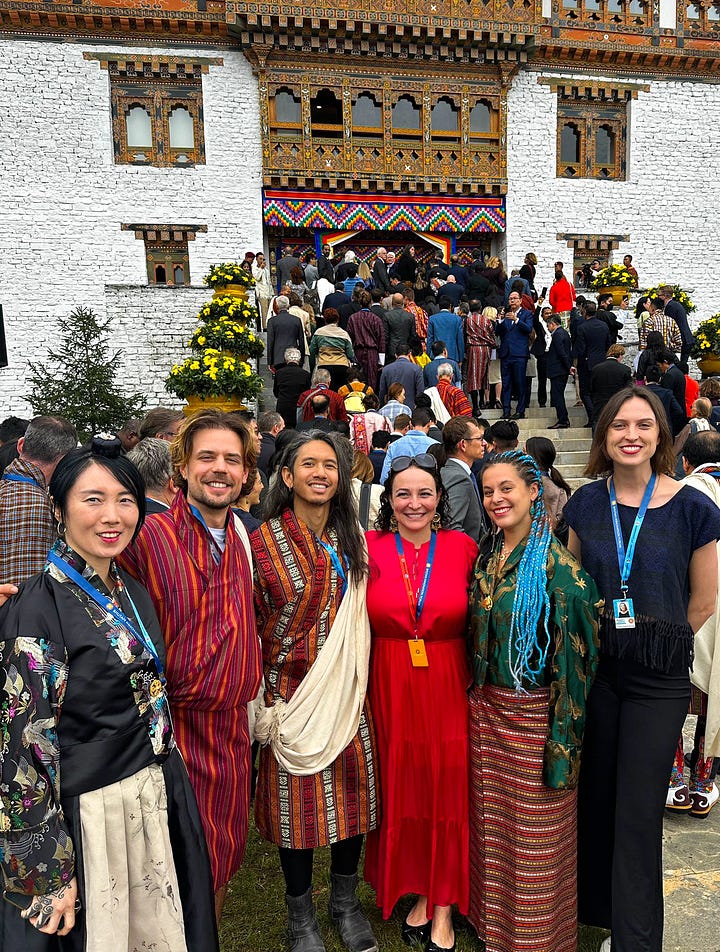
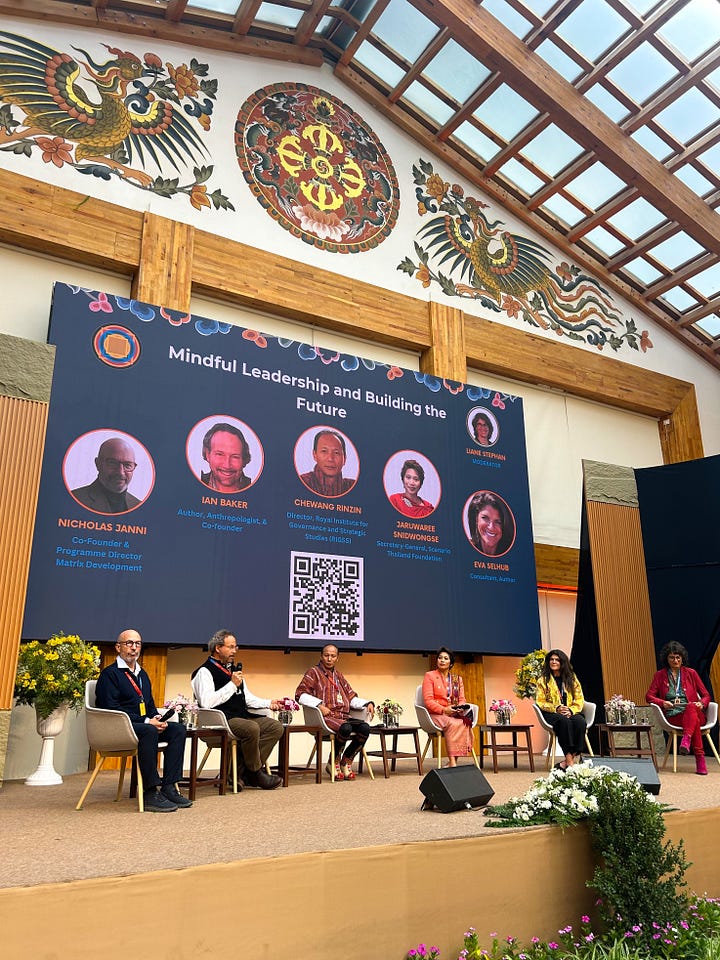
🌲 The sustainability
Bhutan is carbon negative, with an abundance of natural beauty and more than 70% forest cover (in their constitution, this should never be less than 60%). There is an understanding that we happen to be human beings, and everything we do affects the many other beings that live on this planet. Bhutan's biological corridors protect animal movement during breeding and migration, and its source of energy is clean and renewable hydropower, which they are able to export to neighbouring countries. Bhutan has also established a comprehensive legal framework that ensures economic activities do not compromise environmental integrity. For example – regulations are in place so that buildings are designed in a way that is environmentally friendly, and promotes their traditional architecture. And Bhutan requires tourists to pay a daily Sustainable Development Fee and hire tour guides, which encourages environmental conservation and community development.
📚 The mindful education
I was extremely fortunate to tour a local high school – the Early Learning Centre. Every hour, a gong sounds and both students and teachers meditate for one minute. Every day, students are encouraged to share the feelings that they are experiencing, and taught healthy ways to manage them (all emotions are welcome, but all behaviours are not). There are support circles available at the school for both teachers and parents, as well as restorative justice circles that focus on reconciliation rather than assigning blame – and creating safe spaces for students when conflicts arise. Students are asked to show compassion for self and others at all times, and there is a 'report and support' system in place to help those who are bullying others. Much more info about ELH High School, here!
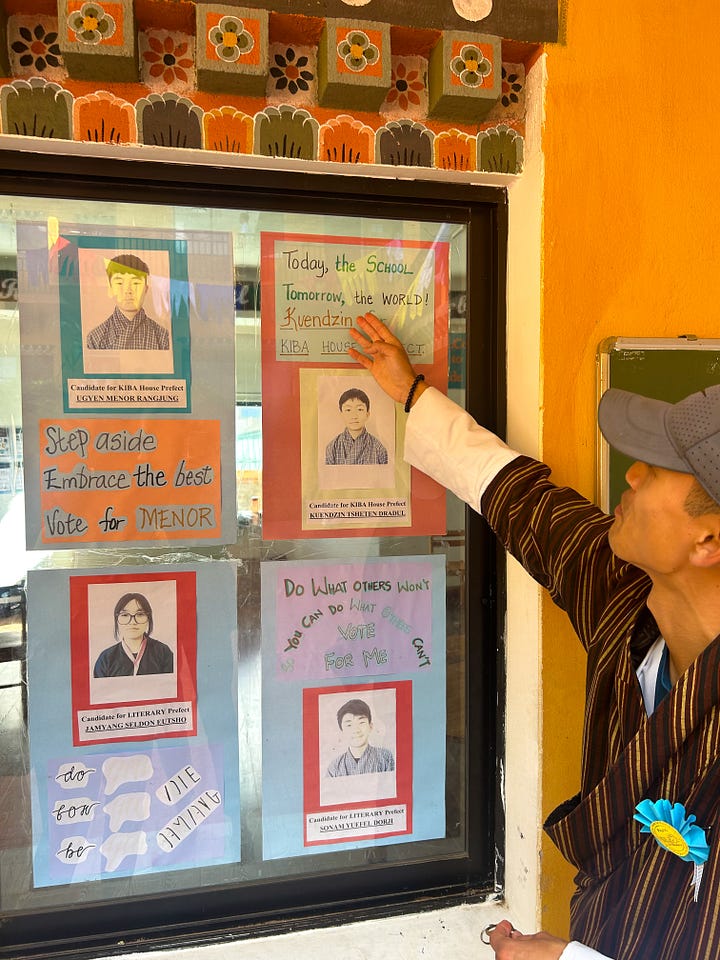
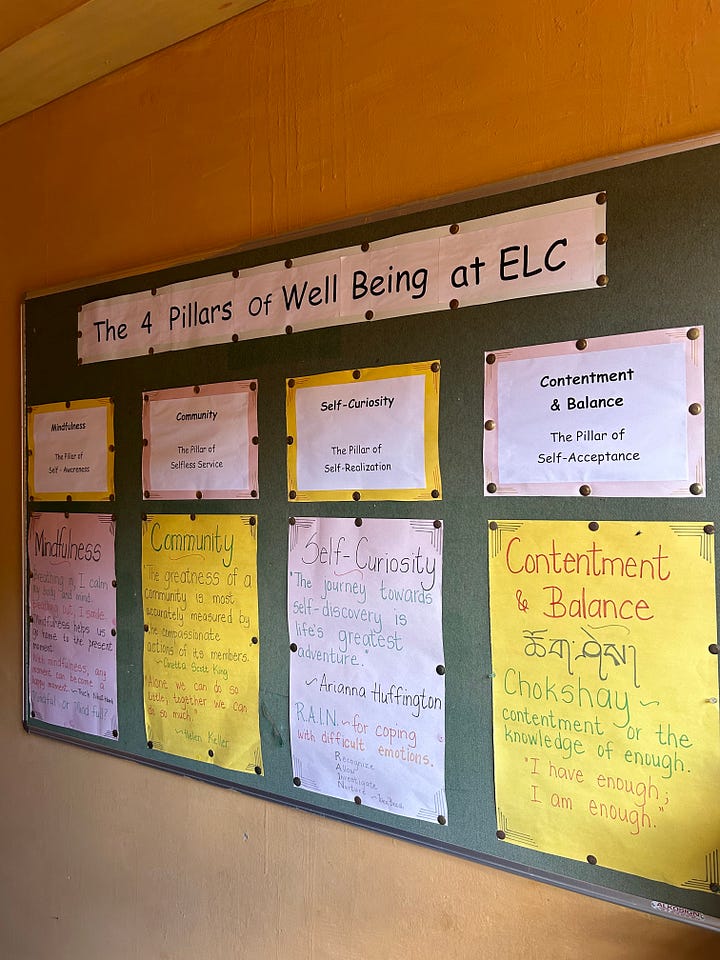
👑 The people-centric leadership
The king and queen are loved and known for actively engaging with citizens and prioritising their welfare. On his 40th birthday, King Jigme requested that citizens either plant a tree, adopt a stray animal, or clean up their neighbourhoods as a tribute to him (over 108,000 trees have been planted over the years). During the forum, the queen sat and drank tea with us, and even contributed when we (for reasons I can’t remember) started talking about Burning Man. During an unofficial dinner that participants organised at the forum, the king popped by to say hello, organised a cake and someone to sing a traditional song, and gave everyone gift baskets. He also said a few impromptu and inspiring words:
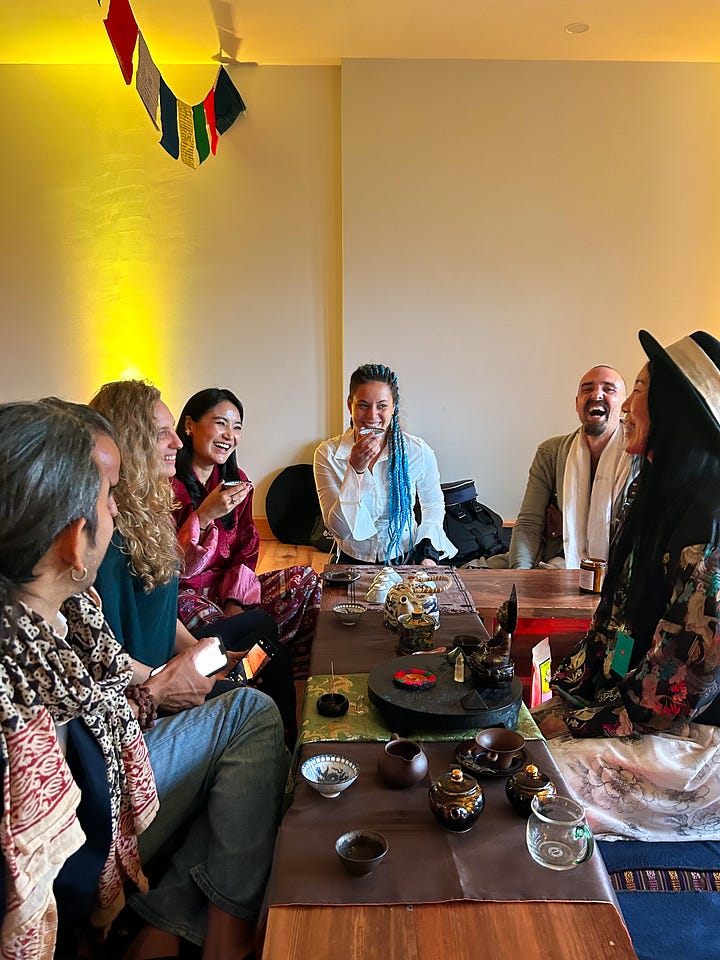
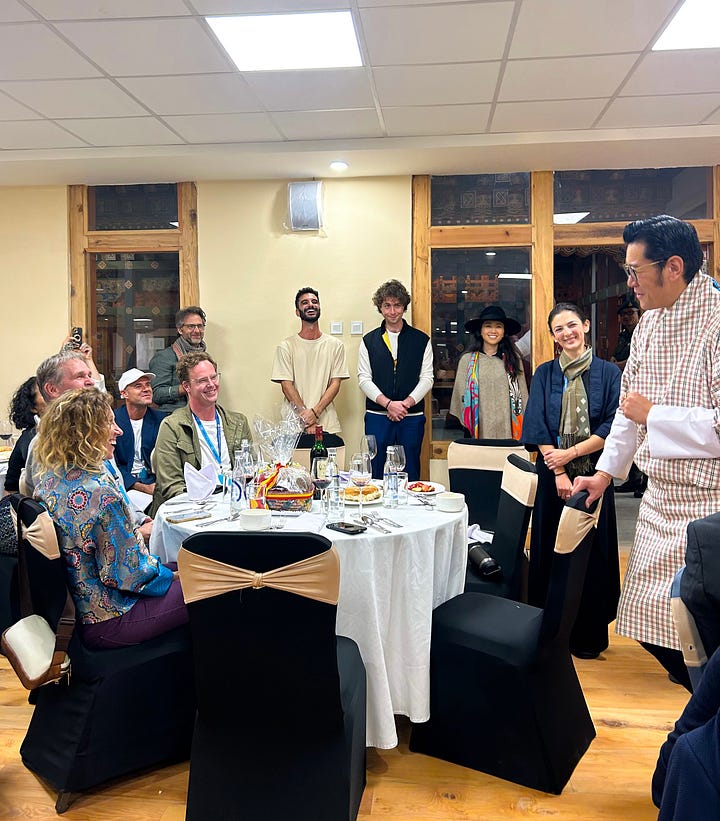
🙂 The holistic wellbeing
Bhutan's Gross National Happiness (GNH) Index basically measures the collective happiness and well-being of the Bhutanese population. It's structured to capture different aspects of life, including psychological wellbeing, health, education, cultural diversity, community engagement, ecological resilience and living standards, and allows policymakers to design strategies that address the root causes of unhappiness. The GNH is rooted in Buddhist teachings and philosophies, and acknowledges the spiritual and emotional dimensions of collective happiness. I saw this play out in practice while in Bhutan, and noticed a big focus on mindfully listening to and honouring (not judging) our emotions, our intuition and our bodies. I also visited the National Traditional Medicine Hospital, which offers natural treatments and medicines like herbal baths, steam rooms, hot compression and acupuncture, and works side-by-side with the modern medicine hospital.
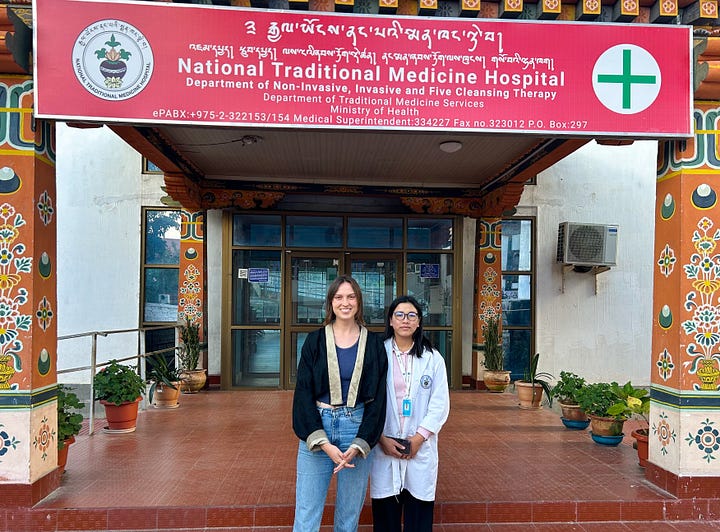
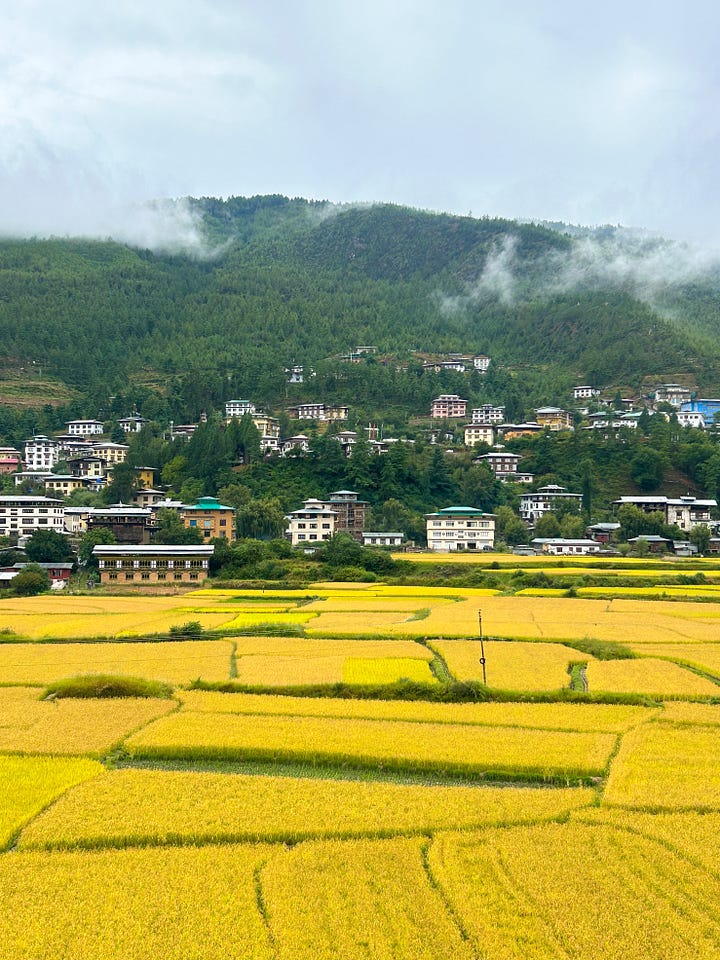
🫴 The hospitality
Finally, for anyone paying Bhutan a visit, you will notice that the Bhutanese people are incredibly warm, friendly, and treat guests in their country with great respect and generosity. Just a few examples from the 10 days I spent there – a new Bhutanese friend and her family drove me to a health & wellness centre and insisted on waiting three hours, just so they could drive me home. One of the managers at my hotel also went shopping with me for a traditional outfit, and later joined my taxi ride to drop me at the airport.
All in all, Bhutan is a very special place. I feel lucky to have experienced it while it is relatively untouched by the outside world, and there is a lot that we can learn from their unconventional way of doing good.
A shoutout and huge thank you to everyone who made the Bhutan Innovation Forum happen, and to Humans For Good members Nehal Jain and Caleb Heard who flew all the way to Bhutan to join me.
Gelephu, the mindfulness city in Bhutan that will be home to 1 million people from different countries, is looking for external investment to bring their plans into reality. I also connected with a traditional medicine company, Menjong Sorig, who are looking to collaborate and expand their reach to other parts of the world. If either of these opportunities are of interest to you, please feel free to reach out to me at georgia@humansforgood.co.
And for anyone curious about Bhutan or keen to join Humans For Good at the forum next year, let me know in the comments or drop your details here!
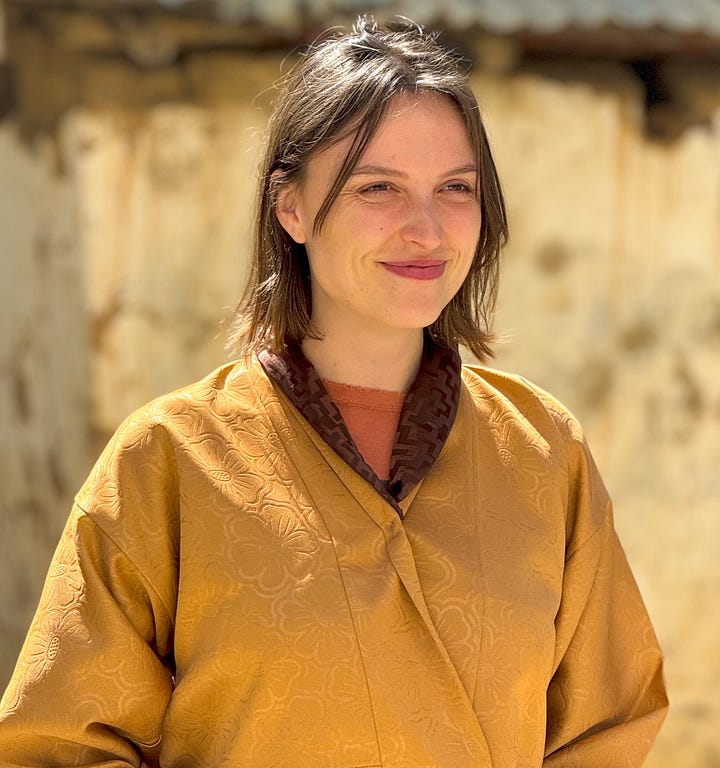
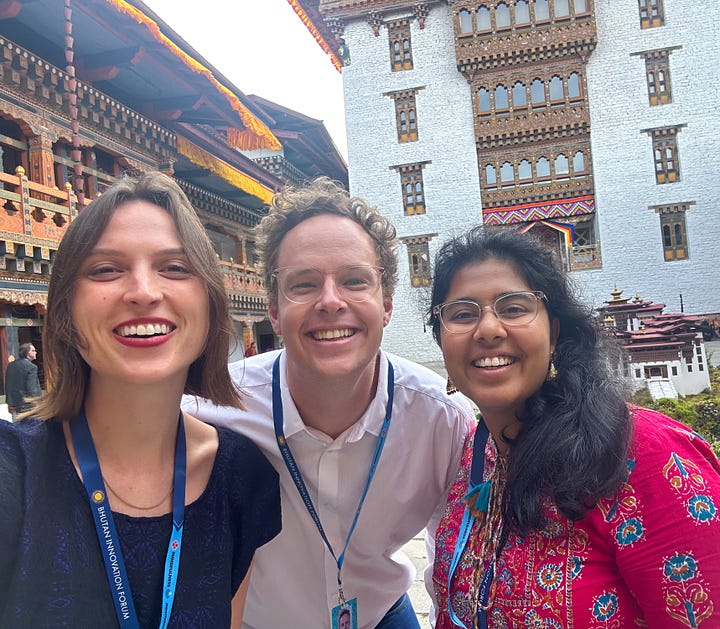
Get involved in HFG
🥘 Our final potluck for 2024 is happening in Sydney on Tuesday, November 26! HFG potlucks offer a casual, inclusive and cosy space to explore different global issues and their solutions, and we’ll have 15-ish members sharing about causes that they care about. Join us for good food, good chats, and good humans. A shoutout to our friends at PollenOne – a new marketplace for Australian funding, grants and tenders, for partnering with us to bring it to life
🌎 Are you living life and doing good in an unconventional way, and interested in sharing your perspective or story? Drop your details here
✌️ To connect with the community online, head over to Slack and say hey (sign up here if you haven’t already)
🪶 If you’re looking to find people who share your values, hobbies and lifestyle in Australia, or while abroad, head over to Flock – our database of all kinds of communities around the world (including social impact spaces)
🤝 Interested in partnering with Humans For Good, or need hands-on support with your community, event, program or platform? Get in touch for a chat
👀 Find, or offer, free or discounted products, services or experiences that do good via our community co-op. A few of our favourites – free co-working at Hub Australia for successful applicants, 10% off a Treely challenge for your organisation (every 15k steps, a tree is planted), 20% off Sörzero – sustainably brewed, non-alcoholic beer (discount code: HFG20), and free 1-1 coaching with Rob Chan for climate/mobility founders
Partner shoutout
If you’re looking for a toolkit for building or growing your impact-driven product or community, here are a few platforms that we love working with during our day-to-day: Circle, Mighty Networks and Disco for all-in-one community platforms, Substack and Beehiiv for newsletters, Butter for vibey events that are online, Notion for a user-friendly workspace, Airtable for databases, and Humanitix for event pages with a positive impact 🌱
That’s all folks
Thanks for reading our first edition of Unconventional, and we hope to see you around the community soon!
– Georgia 👋








